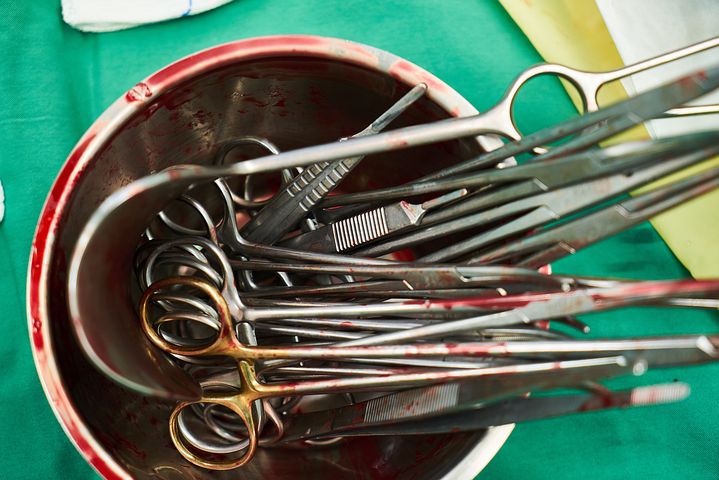
Organ Trafficking: How Structural Inequality Leads to Individual Exploitation
Introduction
“They took my passport and clothes…Then they drugged me. When I was awake, I found myself alone. I was in pain and there was blood on my side coming from a bandage. I had no idea what was happening.”
Hana, an asylum seeker, shared her violent experience with the organ trafficking industry in an interview with Dr. Seán Columb for his work Trading Life: Organ Trafficking, Illicit Networks, and Exploitation. Her story represents the extreme of the underground trade in organs in which people’s organs are forcibly removed.
While Hana’s case of forcible removal is the exception and most individuals who sell their organs have “willingly” agreed to the sale, organ sale as choice is an ongoing debate. Almost always acting out of poverty-induced desperation, selling an organ can appear a worthwhile price for the promise of escaping insurmountable debt, generational poverty, and/or a conflict zone. But how true is the promise of debt relief and climbing out of poverty when selling your organs and can this really be framed as a choice?
For Dawitt, another of Dr. Columb’s interviewees, the promise was hollow. As Columb recounts in a 2019 article, Dawitt had fled Eritrea at 13 years old. After being smuggled into Egypt through Sudan, Dawitt faced debt and had difficulty finding employment. At 19, Dawitt met a man who offered him a means of making money—selling his kidney. As Dawitt said, “It was a lot of money. How [could] I say no to $5,000 when I have nothing and my family needed help?”
Dawitt was promised passage to Europe as payment for the organ removal surgery . However, after two weeks of recovery, Dawitt’s broker and his supposed smuggler disappeared. Dawitt was left still in debt and recovering from his kidney removal, further hampering his ability to find employment.
Dawitt’s story is reflective of the majority of those who sell their organs. In the face of debt, these individuals agree to sell their organs for financial payment or desperately needed services, as in Dawitt’s case. Yet, after the surgery, they are often given far less money than promised, if any or the services they were promised are never delivered. Most organ sellers receive less than 10% of the payment from their organs with the majority of the money going to intermediaries like the broker that facilitated Dawitt’s organ sale. Moreover, many people find themselves in further poverty as their debt is exacerbated by the cost of post-operative health care for medical complications and limited employment opportunities as they recover.
This industry of organ trade has been driven by rising global demand for organ transplants and limited supply by altruistic donations globally. Higher incomes, larger aging populations, and rises in chronic, heart, and vascular disease has created an ever-increasing demand globally for transplantation. According to the World Health Organization’s Global Observatory on Donation and Transplantation, only 10% of this global need is being met by donated transplants. This demand has driven a rather lucrative underground economy in organ trafficking.
In 1987, the World Health Organization first defined and suggested the prohibition of organ trafficking, referred to as “transplant commercialism.” They declared a criminal prohibition of any organ trade in which a profit was made. Though an individual donating their organ could be compensated for health care, employment, and housing costs arising from their donation, they, and any intermediaries like brokers, recruiters, or health care professionals, could not make a profit from the donation. The WHO justified its suggested prohibition by referring to the likely exploitation of those who are impoverished or members of vulnerable groups. As the WHO stated, “Payment for cells, tissues and organs is likely to take unfair advantage of the poorest and most vulnerable groups, undermines altruistic donation, and leads to profiteering and human trafficking. Such payment conveys the idea that some persons lack dignity, that they are mere objects to be used by others.”
This suggested prohibition has been taken up by international bodies as well as nation-states. Presently, Iran is the only country in which there is a legal trade in organs, facilitated by the government.
The WHO’s concern regarding the organ trade has warrant, as reflected in Dawitt’s story. Those who sell their organs are vastly and disproportionately impoverished. The organ trade appears to reflect a regional power disproportion as well. According to Nancy Scheper-Hughes of the now-defunct Organs Watch, organ trafficking generally moves from the Global South to the Global North.
This report explores how the trade in organs has been framed and what might be concealed by that framing. Specifically, by examining the ability of an individual under financial duress to “consent” to the selling of their organs, this report seeks to look at who—and what—are doing the exploitation in instances of organ trafficking. Though international protocols have focused on individual criminality of those who sell, facilitate the sale of, and buy organs, the report postulates that this approach misses the broader socioeconomic structures that drive the poverty behind organ sellers’ decisions, creates disparate amplified by lack of basic public health care access, and contributes to regional power disparity between the Global North and Global South.
by Abby Leonard: Research Fellow for Human Trafficking Search, Yale- Robert C. Bates Postgraduate Fellow and Yale graduate (’21)
Read full report.
